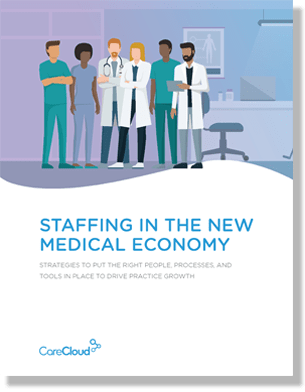Forget the stark fluorescent lighting and the sterile hum of machinery. Sometimes, the path to the most powerful health doesn’t lead via the imposing doors of a clinic. Instead, it winds through a pleasant, network-targeted maze called ambulatory care. Imagine bustling clinics situated in familiar streets, humming with specialists devoted to keeping you vibrant and healthy. That’s the essence of this area of healthcare, a landscape wherein analysis, remedy, and prevention take center degree.
Ambulatory healthcare, often called ambulatory care services, performs a pivotal role in modern healthcare, supplying easy and cost-effective solutions that prioritize preventive measures and chronic health management. Within ambulatory care settings like ambulatory care clinics and ambulatory treatment facilities, loads of healthcare services are furnished on an outpatient foundation, removing the need for a single-day stay. This blog will delve into the essence of ambulatory care, its offerings, and why it matters in the healthcare landscape.
Unpacking the Essence of Ambulatory Care
Ambulatory care, derived from “ambulatory,” that is mobile or capable of being moved, represents an ambulatory care facility, a path to healthcare offerings between extensive health facility care and regular outpatient visits. It caters to patients who do not require admission, bed rest, or overnight stays, providing a middle floor for diagnosis, remedy, and prevention without disrupting daily lifestyles.
Imagine a spectrum of healthcare, with healthcare practices on one side, representing intensive, overnight stay, and preventive checkups along with your family healthcare provider on the other. Ambulatory care sits within the center. It consists of diverse healthcare offerings added on an outpatient basis, meaning you acquire the care you need and go home the same day.
Services Provided by Ambulatory Care
Ambulatory care incorporates a wide variety of services supplied in outpatient settings, along with:
- Primary care physician visits: Routine checkups, chronic condition management, and addressing minor illnesses.
- Urgent care centers: Handling non-life-threatening but time-sensitive issues like sprains, fevers, or minor infections.
- Specialty clinics: Focused on unique areas like cardiology, dermatology, or mental health, supplying specialized consultations and treatment plans.
- Outpatient surgery centers: Equipped for procedures not needing overnight stays, such as cataract surgery, arthroscopy, or some cosmetic surgeries.
- Diagnostic centers: Housing advanced equipment for X-rays, MRIs, ultrasounds, and other tests assisting correct diagnoses.
Why Ambulatory Medicine Matters
The rise of ambulatory care addresses vital needs within the healthcare system, providing:
- Accessibility: Convenient network places make healthcare more accessible, especially for those with restrained mobility or transportation options.
- Cost-effectiveness: Ambulatory care services are usually lower priced than inpatient hospital stays, proving to be beneficial for both patients and healthcare providers.
- Efficiency: Many ambulatory services may be delivered speedily through ambulatory clinics, lowering waiting time and streamlining the general healthcare experience.
- Focus on prevention and chronic disease management: Ideal for preventive care like vaccinations, most cancer screenings, and dealing with chronic conditions, improving long-term health outcomes.
- Enhanced patient experience: Ambulatory care facilities prioritize comfortable and patient-centric surroundings, improving satisfaction and fostering higher patient-provider relationships.
Embracing the Benefits of Ambulatory Care
Understanding the reach of ambulatory patient offerings empowers patients to make sound decisions about their health, including:
- Easy regular checkups: Ambulatory settings facilitate faster and less complicated normal checkups with primary care physicians.
- Appropriate care for non-emergent concerns: Urgent care facilities efficaciously manage many non-life-threatening problems.
- Explore specialty clinics: Dedicated clinics offer specialized information and treatment options for targeted health issues.
- Ask about available services: Many practices offer on-site diagnostic testing or minor processes, getting rid of the demand for separate appointments.
- Advocate for accessible ambulatory care: Speak up for the importance of easy and lower-priced outpatient services to your community.
The Future of Ambulatory Care
As technology advances and the healthcare system changes, ambulatory care is set to play an even greater role with:
- Greater integration with telehealth: Virtual consultations and remote tracking enhancing accessibility and convenience.
- Specialization of ambulatory care centers: More facilities that specialize in particular situations or processes, imparting tailor-made care options.
- Advanced diagnostics and treatments: Robust equipment and techniques are becoming easily provided in outpatient settings.
- Emphasis on preventive care and wellness: Ambulatory care is principal to promoting healthy lifestyles and handling chronic illnesses proactively.
Conclusion
Active participation in your health journey entails awareness and embracing ambulatory care. Stepping out of the boundaries of a healthcare institution would not decrease the quality of care. Rather, it can help provide greater accessibility, affordability, and a focal point on well-being, placing you in control of your health and the destiny of healthcare.
In the end, by embracing the blessings of ambulatory care, advocating for its accessibility, and taking a lively position on your well-being, you can make sure that you get hold of first-rate viable care. So, steer your fitness journey and be a proactive architect of your well-being.




